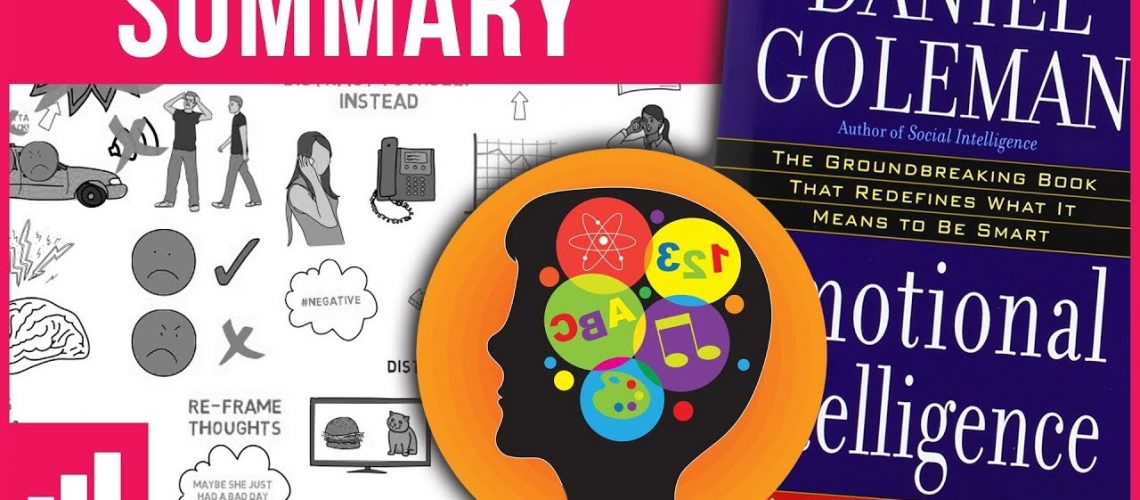This video by One Percent Better explores the five crucial skills of emotional intelligence, and how they determine our success in life.
Key Takeaways
There are five key skills of emotional intelligence (EQ), and each plays a role in determining success in relationships, work, and even our physical well-being.
The brain is plastic, not having high emotional intelligence does not mean you are doomed. Each of these skills of (EQ) represents a body of habit and response that can be improved on with the right effort.
1. Self-Awareness knowing one’s emotions as they happen. If you can do this, you’ll make better decisions.
2. Managing Emotions the ability to handle feelings. People that can manage their emotions are good at bouncing back from setbacks in life.
3. Self-Motivation the ability to motivate yourself and persist through challenges
4. Empathy the ability to recognize emotions in other people. The people skill that makes people better at teaching, sales, and management.
5. Handling Relationships these abilities lead to popularity, leadership and interpersonal effectiveness.
How You Can Improve Emotional Intelligence?
Lesson 1: The Ventilation Fallacy
Venting when you’re angry prolongs your mood, rather than end it.
- Multiple studies show that venting your anger doesn’t make you feel better, but instead prolongs and amplifies your anger. It pumps up the emotional brain’s arousal and leaves people angry.
Venting when you’re sad is a good way to get your feelings validated, but isn’t as effective as when you’re angry.
What can you do to control your anger?
- Deep Breathing Take a few deep breaths to help you relax and slow your heart rate. This helps your body go from a high arousal to a low arousal state.
- Go for a walk but don’t indulge in anger-inducing thoughts.
- Reframe thoughts as bad thoughts come, let them down and reframe them.
Lesson 2: Don't Ruminate When You're Sad, Distract Yourself Instead.
Continuing to think negative thoughts will lead you deeper into sadness. Distractions are what breaks the chain of sadness maintaining thinking.
The best distractions are ones that will shift your mood such as a funny movie, reading an uplifting book or going to a sporting event.
Distractions are more effective than crying because crying reinforces rumination and prolongs your misery.
Solutions to Help Manage Sadness
- Exercise is good because it changes your physiological state. Depression is a low arousal state and aerobic exercise counters it by putting you in a high arousal state.
- Go for the easy success complete small tasks that you’ve been putting off for awhile and reap the rewards.
- Re-frame the situation just like with anger, take note of bad thoughts when they come to you and see them in a more positive light.
- Help Others in Need it helps us empathize with others and lifts us out of negativity.
Lesson 3: The Artful Critique- How to criticize the right way
Criticism is important in how it is given. It determines how satisfied people are with their work, with those whom they work with, and those that are responsible.
The worst criticism you can do is tell people they are screwing up delivered in a harsh, sarcastic, angry tone.
- It provides neither a chance to respond or any suggestion on how to do things better.
- It ignores the person’s feelings and leaves them feeling hopeless & angry.
Four Things to Successfully Deliver Constructive Criticism
1. Be Specific.
2. Offer a solution.
3. Do it face-to-face.
4. Be sensitive and show empathy.
Lesson 4: Emotional Contagion — Set the Emotional Tone
The mood of the expressive person is transferred to the mood of the expressionless person. Emotions are contagious like a virus.
The ability to drive the emotional state in another person through emotional contagion is the heart of influencing people. Whether that’s through speaking, teaching, singing or in any other interpersonal communication.


